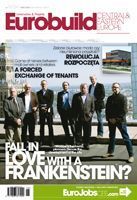The ceremony for the MAXI Awards – the “retail Oscars” – has taken place in Hollywood. Representatives of Polish shopping centres shone in a city where the dreams of many aspiring film stars have come true, as many of the awards winged their way across the ocean all the way to the land of the VistulaZuzanna Wiak The United States is a nation of shopping centres, and these have been the hub of social life for dozens of years. Some of the biggest and best retail centres operate there. This fact has been regularly confirmed at the annual awards of International Council of Shopping Centers, where US malls have traditionally dominated. The awards are one of the world’s most prestigious distinctions in the field of shopping centre marketing. How has Europe fared in comparison? Not too good, generally speaking. This year’s MAXI Award winners were chosen from 358 centres in 32 countries, out of which 102 centres qualified to take part in the finals. Eleven of t




























































